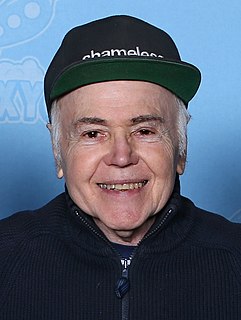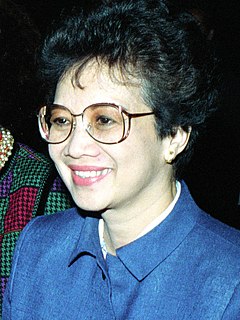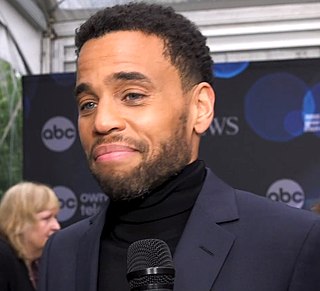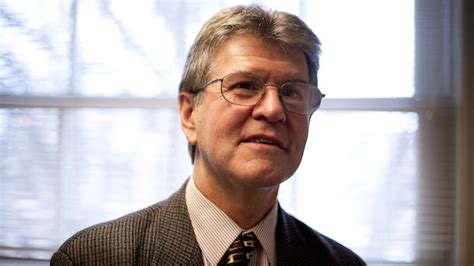A Quote by Hugh Jackman
My father is very Jean Valjean. He's what I would call a great example of a religious person. He is a deeply thoughtful man whose religion is in his deeds way more than anything else. It's not talked about that much.
Related Quotes
I think that my strong determination for justice comes from the very strong, dynamic personality of my father ... I have rarely ever met a person more fearless and courageous than my father ... The thing that I admire most about my dad is his genuine Christian character. He is a man of real integrity, deeply committed to moral and ethical principles. He is conscientious in all of his undertakings ... If I had a problem I could always call Daddy.
LAUGHTER is the very essence of religion. Seriousness is never religious, cannot be religious. Seriousness is of the ego, part of the very disease. Laughter is egolessness. Yes, there is a difference between when you laugh and when a religious man laughs. The difference is that you laugh always about others - the religious man laughs at himself, or at the whole ridiculousness of man's being. Religion cannot be anything other than a celebration of life.
I would not have said anything about Mr. Trump, never - I would never have said anything if he didn't call himself a Christian. It'd be none of my business whatsoever to make any comments about his language, his vulgarities, his slander of people, but I was deeply troubled ... that here's a man who holds up a Bible one day, and calls a lady "bimbo" the next.
Actors aren't all the same. They have very different skills. There are actors of intellect who are very thoughtful about everything they do... and then there are actors of instinct who don't know what they're doing until the cameras roll... My father was actually quite thoughtful about what he did, while my mother was much more instinctual.
One of my heroes is Mr. Sidney Poitier. In his autobiography, "The Measure of a Man," he talks about the difference between being a great person and being a great actor. I'm happiest when I'm acting, and I've dedicated my life to it. Still, as much as I love acting, at the end of the day, I want to be remembered as a great person, first, and as a great actor, second. I believe that acting is a talent while being a great person encompasses so much more: being a good father, a good husband and the ability to show compassion for others.
It is also amazing to find just how religious and occult-minded some of the leading political and military players of the war were, from von Moltke and Ludendorff to Brusilov and J F C Fuller. Each, in his way, was deeply involved in what we would today call the occult, spiritualism, and visionary religion.
I discovered several never-failing signs by which one might know when a man wished to take another wife. He would suddenly 'awaken to a sense of his duties'; he would have serious misgiving as to whether the Lord would pardon his neglect in not living up to his privileges; he would become very religious, and would attend to his meetings ... which seemed just then to be very numerous, and in various other ways he would show his anxiety to live up to his religion.
I think there in a great deal to be said for religious education in the sense of teaching about religion and biblical literacy. Both those things, by the way, I suspect will prepare a child to give up religion. If you are taught comparative religion, you are more likely to realise that there are other religions than the one you have been brought up in. And if you are if you are taught to read the bible, I can think of almost nothing more calculated to turn you off religion.




































